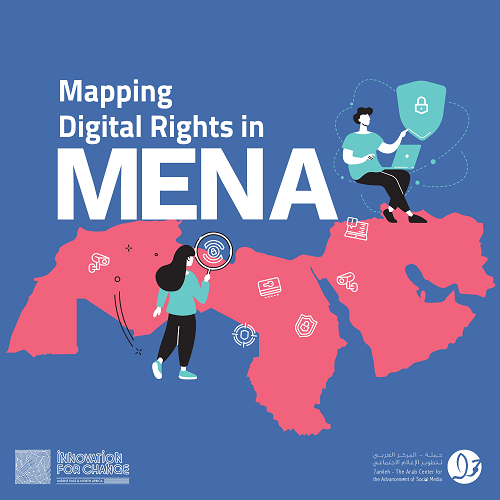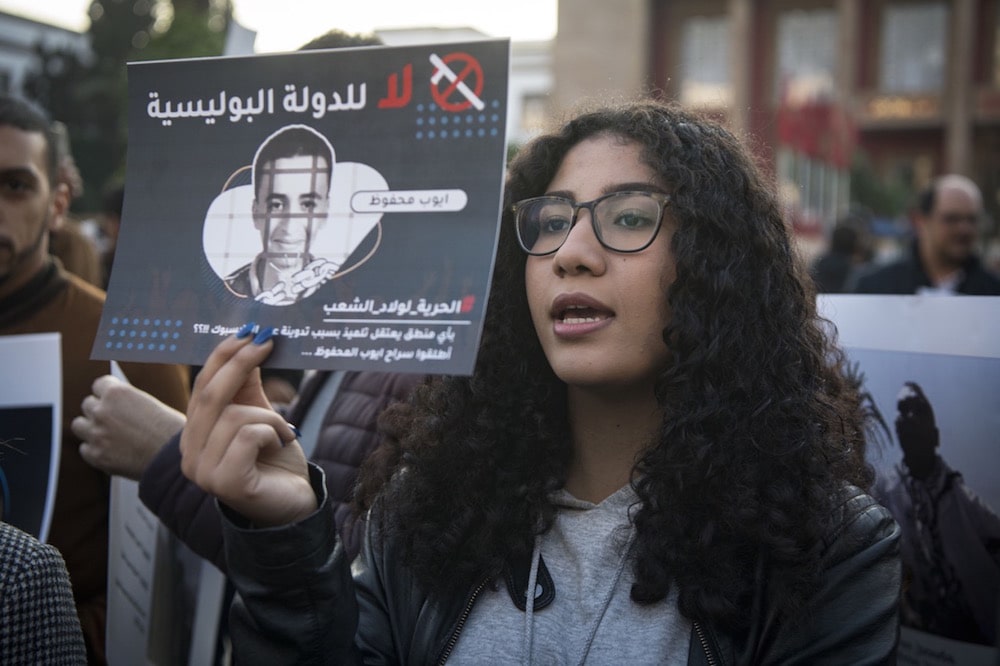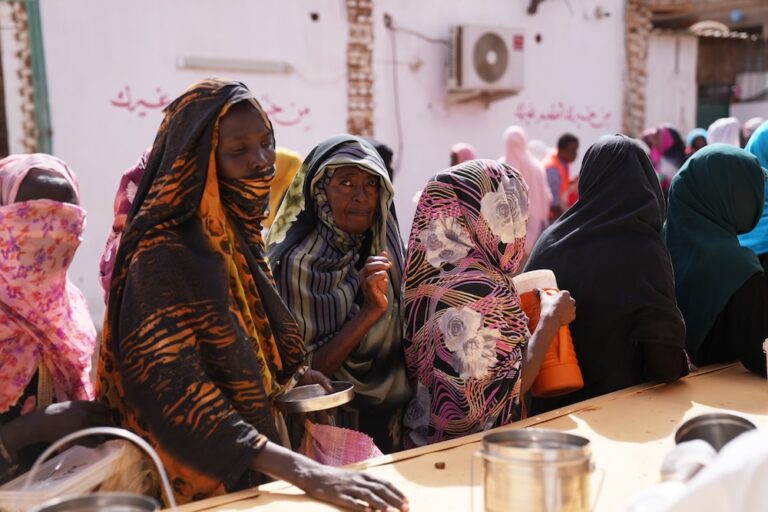New research from IFEX member 7amleh examines how digital rights policies and practices in Lebanon, Jordan, Morocco and Tunisia are impacting freedom of expression and the right to information, and highlights the need to improve people's access to a safer online environment.
This statement was originally published on 7amleh.org on 10 March 2021.
The Arab Center for the Advancement of Social Media in cooperation with Innovation for Change Middle East and North Africa (I4C MENA) released new research entitled “Mapping Digital Rights in the Middle East and North Africa Region”. This mapping was designed to analyze digital rights in Lebanon, Jordan, Morocco, and Tunisia and to serve as a base for joint advocacy about digital rights to governments and technology companies working in the region.

Digital rights are fundamental rights in today’s growing, media age. Already, people in the MENA region have adopted many digital technologies and spend considerable amounts of time online. However, the technological developments in the region have outpaced the development of the regulatory developments and most countries in this study do not have sufficient policies and practices in place to sufficiently protect people’s digital rights.
This research found that while there have been attempts to develop legislative frameworks that can protect people’s digital rights, that these policies can also be used to oppress people. As a result, the space for freedom of expression is shrinking, and activists and human rights organizations who are working to defend human rights are finding themselves increasingly under threat and attack both online and offline.
The research focuses on eight topics that were identified through extensive research; the right to access the internet, the right to privacy, the right to be forgotten, the right to access information, the right to access the digital economy, the right to freedom of expression, hate speech, discrimination and sexual harassment and fake news.
The research includes a comprehensive literature review of available local or regional studies/research on digital rights in the four countries, as well as information from interviews conducted with digital rights and media experts in each country. The research also provides a set of recommendations for governments, corporations, and civil society developed by experts, that can improve people’s access to a safer environment for exercising their digital rights and their human rights and support future research into this area.
Rajae Boujnah, Innovation for Change MENA Hub Manager, stated “Digital Rights are not different from our conventional and ratified civil rights and they should be translated on the internet as well. We believe that this report can help to initiate the first steps towards an advocacy program upholding digital rights, and the right to freedom of expression online in line with Innovation for Change MENA Hub’s mission to create free and secured online and offline civic spaces”.



